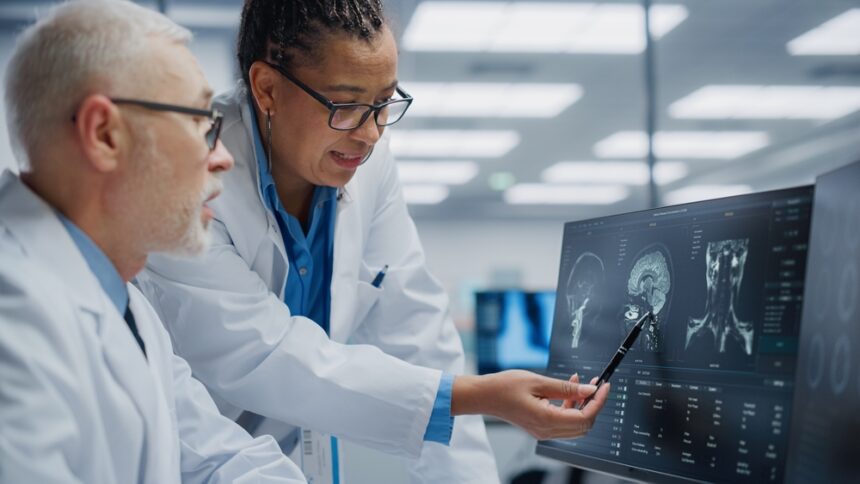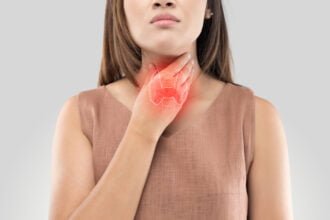The aftermath of a car accident is often disorienting, a whirlwind of adrenaline, shock, and confusion. And while the immediate focus is often on visible injuries, the impact on the nervous system can be significant. Neurological issues can lead to long-term consequences if left undetected and untreated.
- Immediate vs. Delayed Onset Symptoms
- Signs And Symptoms Of Neurological Injuries
- 1. Head Injuries And Concussions
- 2. Neck And Spinal Cord Trauma
- 3. Cognitive And Behavioral Changes
- 4. Nerve Damage And Peripheral Issues
- Timely Assessment: Why Immediate Action Matters
- Importance of Early Diagnosis
- Preventing Secondary Complications
- Ensuring Effective Treatment Strategies
- When to Seek Medical Attention After a Car Accident
- Treatment Options For Neurological Injuries
- The Role Of A Neurologist In Post-Accident Care
- Specialized Expertise In Neurological Assessments
- Diagnostic Tools And Procedures
- Collaboration With Other Healthcare Professionals
This article will explore the signs that indicate the need for a neurologist after a car accident, the importance of timely assessment, and how to navigate the road to recovery.
Immediate vs. Delayed Onset Symptoms
One of the challenges in recognizing neurological issues after a car accident lies in the delayed onset of symptoms. While some signs may be immediately apparent, others may surface days or weeks later. Paying attention to immediate red flags and delayed symptoms that could indicate underlying neurological problems is crucial.
Signs And Symptoms Of Neurological Injuries
1. Head Injuries And Concussions
Head injuries are common in car accidents, and concussions, a form of mild traumatic brain injury, can occur even in seemingly minor collisions. Symptoms may include headaches, dizziness, and confusion. It’s crucial to seek medical attention if any of these signs are present, as untreated concussions can lead to complications such as post-concussion syndrome.
2. Neck And Spinal Cord Trauma
Neck and spinal cord injuries can result from the force of impact during a car accident. Symptoms may include neck pain, tingling sensations, or even paralysis. Recognizing these signs is essential for preventing further damage and ensuring appropriate medical intervention.
3. Cognitive And Behavioral Changes
Neurological issues can manifest in cognitive and behavioral changes. Memory problems, difficulty concentrating, mood swings, and irritability may indicate underlying neurological issues. These changes can significantly impact daily life and relationships, underscoring the importance of prompt evaluation by a neurologist.
4. Nerve Damage And Peripheral Issues
Injuries to peripheral nerves can cause numbness, tingling, or weakness in the extremities. These symptoms may indicate nerve damage and require careful evaluation by a neurologist. Addressing nerve damage is crucial for preventing chronic pain and facilitating optimal recovery.
Timely Assessment: Why Immediate Action Matters
Importance of Early Diagnosis
The significance of early diagnosis in neurological issues cannot be overstated. Immediate medical attention allows for a thorough evaluation of potential injuries, enabling prompt intervention. Early diagnosis prevents further complications and improves the chances of successful recovery.
Preventing Secondary Complications
Neurological issues, if left untreated, can lead to secondary complications. For example, a neglected concussion may result in persistent headaches or cognitive deficits. Addressing these issues promptly can prevent secondary complications, contributing to a smoother recovery process.
Ensuring Effective Treatment Strategies
Timely assessment sets the stage for effective treatment strategies. Neurologists can tailor interventions based on the specific neurological issues identified. From medication and pain management to physical therapy and, in some cases, surgical interventions, early evaluation allows for a comprehensive and personalized treatment plan.
When to Seek Medical Attention After a Car Accident
- Immediate Red Flags: Certain symptoms should prompt medical attention. Loss of consciousness, severe headaches, or persistent vomiting are clear red flags that necessitate an emergency evaluation. These symptoms may indicate severe neurological trauma that requires urgent intervention.
- Delayed Onset Symptoms: In addition to immediate red flags, individuals should be aware of delayed onset symptoms. These may include neck pain, cognitive changes, or numbness that becomes apparent days or weeks after the accident. Recognizing these signs and seeking medical attention is crucial for a thorough evaluation and timely intervention.
Treatment Options For Neurological Injuries
- Medication And Pain Management
Once a diagnosis is established, the neurologist may prescribe medications to manage symptoms such as pain, inflammation, or seizures. Pain management strategies play a crucial role in improving the individual’s comfort and facilitating the rehabilitation process.
- Physical Therapy And Rehabilitation
Physical therapy is often a key component of neurological rehabilitation. Therapists work with individuals to improve mobility, strength, and coordination. Rehabilitation programs are tailored to each patient’s specific needs, promoting optimal recovery.
- Surgical Interventions When Necessary
In some cases, surgical intervention may be necessary to address neurological injuries. Neurosurgeons collaborate with neurologists to determine the most appropriate surgical approach, whether it involves decompression, stabilization, or other procedures.
The Role Of A Neurologist In Post-Accident Care
Neurologists play a pivotal role in post-accident care, bringing specialized expertise to evaluating and treating neurological issues.
Specialized Expertise In Neurological Assessments
Neurologists undergo extensive training to assess and diagnose various neurological conditions. Their specialized knowledge enables them to conduct thorough evaluations, identify specific issues resulting from a car accident, and formulate appropriate treatment plans.
Diagnostic Tools And Procedures
Neurological evaluations often involve a combination of clinical assessments and diagnostic tests. Imaging studies such as computed tomography (CT) scans or magnetic resonance imaging (MRI) may be used to visualize the brain and spinal cord, aiding in identifying injuries. These diagnostic tools provide valuable insights into the nature and extent of neurological trauma.
Collaboration With Other Healthcare Professionals
Neurologists work collaboratively with other healthcare professionals to ensure comprehensive care. Depending on the injuries, this may involve consultations with orthopedic surgeons, physical therapists, or pain management specialists. A multidisciplinary approach enhances the effectiveness of treatment strategies.
Conclusion
Recognizing the signs of neurological issues after a car accident and knowing when to see a neurologist is crucial for optimal recovery. Taking prompt action is vital, whether it’s immediate red flags or delayed symptoms. Remember, early intervention, a collaborative approach to care, and staying informed empower you on your journey to optimal neurological recovery. Don’t hesitate to seek help and prioritize your well-being after a car accident.










